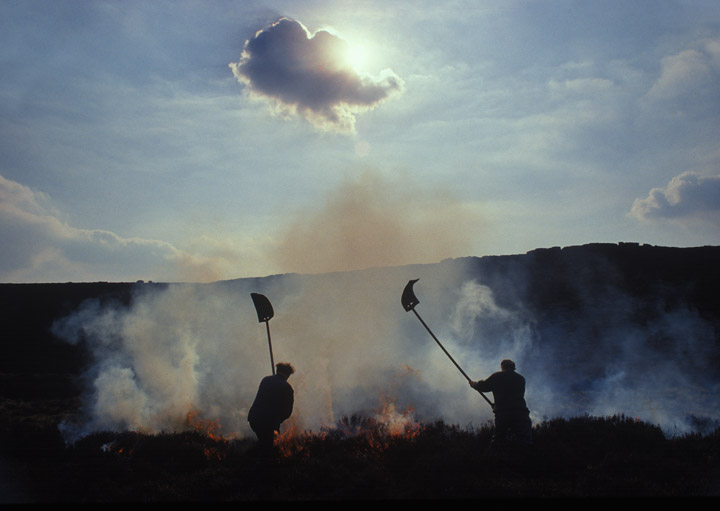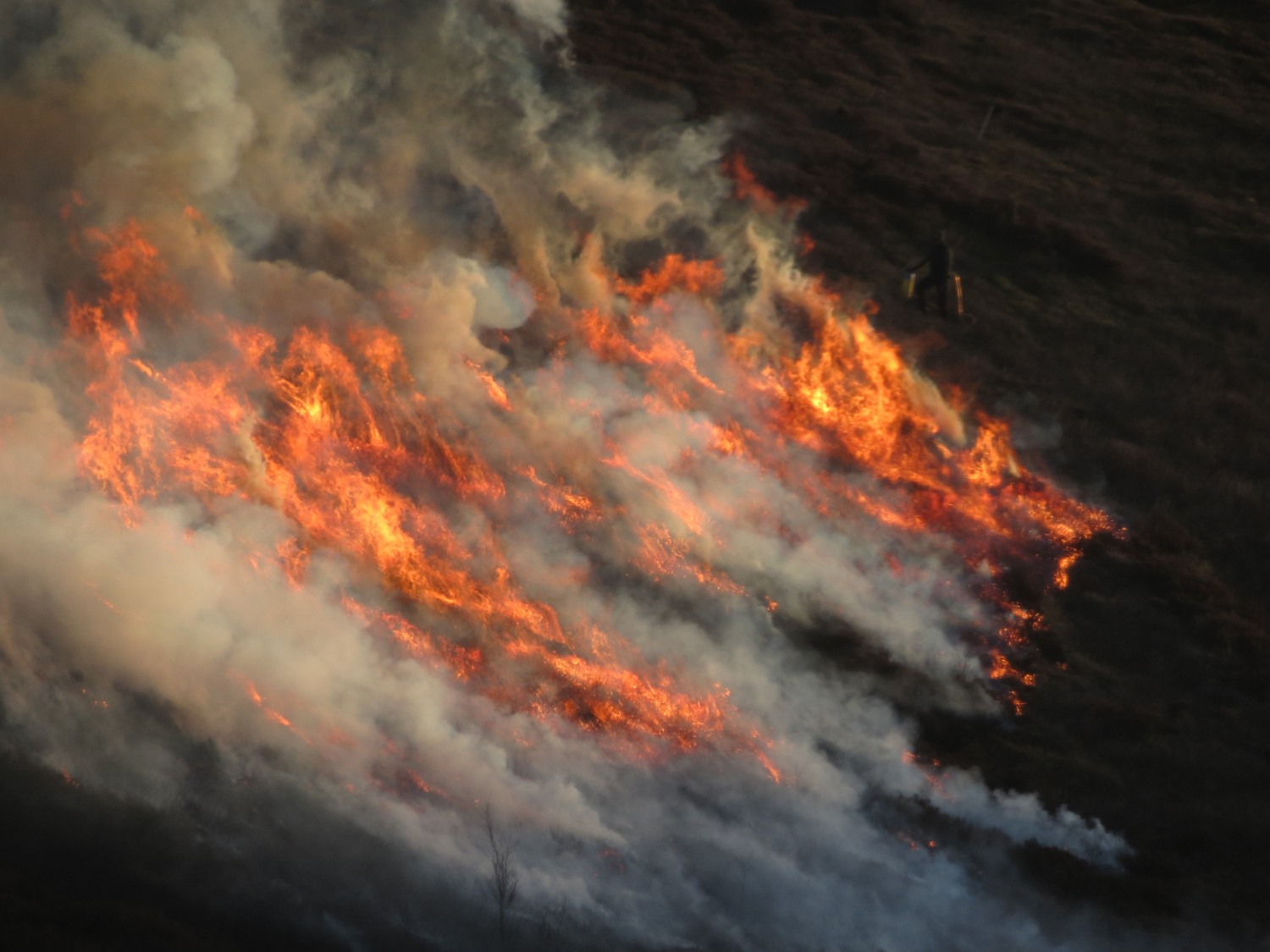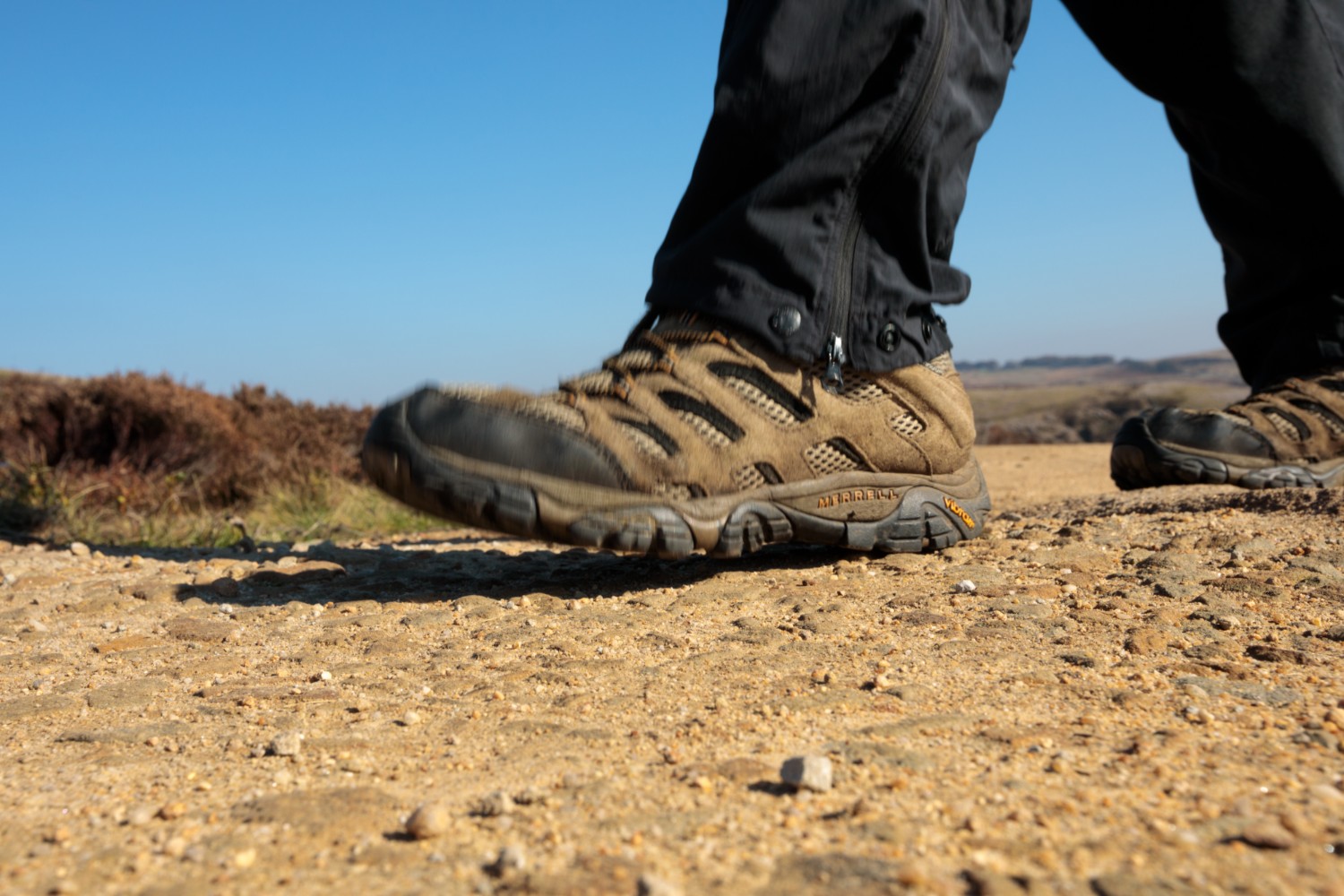
Know what to do
- Phone 999 if you spot a wildfire on the moors
- Be fire aware - don’t have barbecues or fires, or smoke
- Spread the word - tell your friends
You can help by doing your bit to prevent wildfires and protect our moorland habitats!
- phone 999 if you spot a suspected wildfire – don’t assume someone else has reported it
- don't have barbecues or fires on or near the moors
- don't smoke on or near the moors
- take all your litter home
- bring a picnic, only barbecue at home, not the countryside
Arm yourself with the facts:
Peatlands in good condition has a high water table (ground water is close to the surface) which helps to reduce the risk of it catching light. But much of the peatland in the Peak District and South Pennines is much drier than it ought to be and the dry peat will burn. Fire can spread below the surface before re-emerging and igniting the surface vegetation. Dry weather and strong winds may mean fire moves quickly across the surface of the moor, burning everything in its path.
Moorland fires are easily started by people lighting barbeques, campfires and cigarettes, and even by glass bottles. Visitors enjoying the moors may not realise that they have started a fire. Although they put their fire out, it may have caught the underground layers of peat alight. It can continue to burn, unseen, underground for days or weeks before re-emerging to ignite the surface. Dry surface vegetation can catch light from a cigarette or the heat generated by sunshine on a bottle and then spread quickly.
Did you know?
- The moorlands of the Peak District and South Pennines are of global environmental importance.
- Moorland fires devastate wildlife. A wildfire destroys everything in its path, from birds and animals to plants. The height of wildfire risk (spring) is also the time when many moorland birds nest on the ground.
- They harm our resilience to climate change and its effects, including flooding and droughts.
- They can burn through the peat layer and release carbon into the atmosphere, adding to climate change.
- Putting out a wildfire is difficult and expensive. They can spread quickly and burn into the peat, spreading underground before re-emerging elsewhere.
- Putting out a wildfire can endanger the lives of fire officers and rangers who are tasked with extinguishing them.
- Millions of pounds are being spent on the moors to make them more resilient to climate change, reduce carbon loss, slow the flow of water, improve water quality, and make them better habitats for wildlife. A wildfire can undo all this good work in hours.
- In 2018 and 2019 there were a large number of devastating fires on Stalybridge, Marsden and Ilkley moors. The frequency of moorland wildfires appears to be increasing as a result of climate change.
- Two months after Moors for Future Partnership started in 2003, a huge fire swept across Bleaklow, sending plumes of thick smoke across Greater Manchester. The devastating fire burnt the equivalent of 14 football pitches of moorland. It killed everything in its path, from ground nesting birds to sheep as well as moorland plants. Fires like this also burn a huge amount of peat, killing seeds and spores so that plants cannot naturally regrow. They also release tonnes of carbon dioxide into the atmosphere

